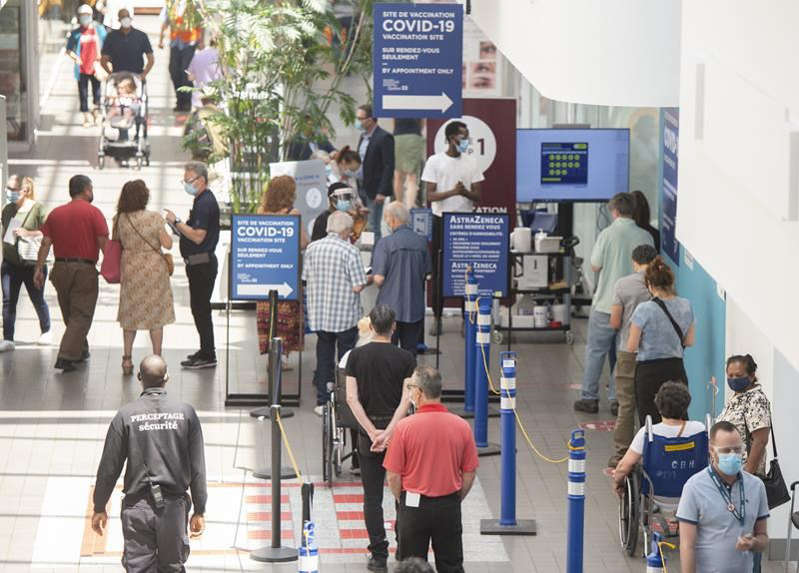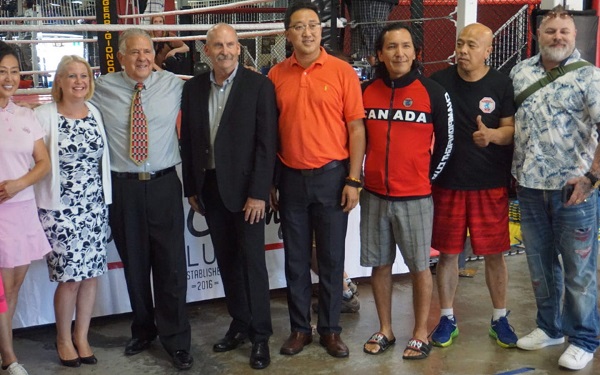Alberta
Group behind the Alberta Sovereignty Act pleased with Province’s strategy
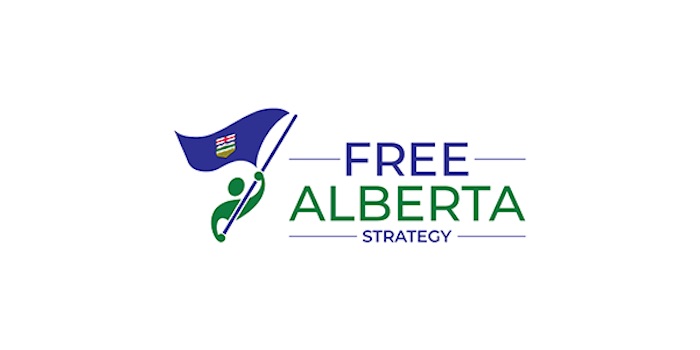
Submitted by Free Alberta Strategy
The Alberta Sovereignty Within A United Canada Act – the new full name for the Sovereignty Act – was introduced to the Alberta Legislature on Tuesday.
Now that we’ve had a short while to digest it, we’re confident in saying that when it comes to protecting the interests of Alberta on the national stage, the Act is right on the money.
The Sovereignty Act, in practicality, is just a procedural bill – more or less just a framework for a free vote in the Legislature. It allows for a Cabinet Minister to introduce a motion about a “federal initiative” that the Minister believes to be unconstitutional on the basis of intruding into an area of provincial constitutional jurisdiction, or is otherwise harmful to Albertans, such as by violating Albertans’ rights and freedoms under the Charter of Rights and Freedoms.
The resolution would identify not only the “federal initiative” that is being addressed, but also specific “measures” that the government may use to push back.
The motion would then be debated on the floor of the Legislature, followed by a free vote of MLAs and – if the majority vote is in favour – the passage of the motion.
At this point, Cabinet is then tasked with implementing the specific “measures” identified in the motion.
The usual suspects have continued to claim that it’s unconstitutional for Alberta to insist that the federal government follow the constitution, and to refuse to help them enforce their laws when they don’t.
This was always a strange argument, but even more so now, given the bill explicitly says, right near the start:
Nothing in this Act is to be construed as (a) authorizing any order that would be contrary to the Constitution of Canada.
Some, however, have now finally come to understand the Strategy.
Take the National Post’s Carson Jerema, for example, who – just a few months ago – was attacking the Sovereignty Act.
Yesterday, he got behind it, in a piece entitled: “Surprise, Danielle Smith’s sovereignty act is very likely constitutional“…
This is hardly the Constitution-breaking plan, which Smith’s critics, myself included, warned about during her campaign for the UCP leadership. The characterization of the sovereignty act as a threat to the rule of law, which some critics are still expounding, is simply wrong. Jesse Hartery, a Toronto lawyer with expertise in federalism, says he has been frustrated by the debate around the sovereignty act because the proposal, as currently written “appears to be constitutional,” based on existing law.
“One government can seek assistance from the other, can co-operate with the other, but they can’t require the other to implement and enforce their laws,” he told me by phone Wednesday morning. “So the (Supreme) Court has never endorsed that, and in fact, there’s decisions where the court says: there’s no positive obligation on a province or the federal government to co-operate with the other.”
Of course, for those of you who’ve been following our work for a while, it’s not at all a surprise that the Sovereignty Act is constitutional!
It’s not a surprise to us, because this has been our argument for over a year – one that we’ve repeatedly explained in these emails, on social media, on traditional media, in virtual town halls, physical events, and more.
Provinces have always had the right to refuse to endorse federal laws, and to do so is not contrary to the Constitution of Canada.
The reality is that the attacks are nothing but political theatre from a group of politicians and critics that have been missing the mark on western alienation for years now.
We’ve seen how far the federal government is willing to go to impose their Laurentian views on the rest of the country. They’ve made a mockery of the political system over the past eight years, launching an all-out war on our energy industry that has landlocked our resources and destroyed our livelihoods. We all remember the dark days when unemployment was the highest in the country, debts were coming due, and suicide rates were high. None of us want to relive that.
The Sovereignty Act is absolutely necessary, and the fact that the Sovereignty Act is Bill 1 demonstrates that this new government has put standing up to federal overreach at the top of the priority list.
Its introduction has already caught the attention of the federal government, with Prime Minister Justin Trudeau saying that he isn’t “looking for a fight,” over the Sovereignty Act.
In his comments, there appears to be some awareness that bringing the hammer down on Alberta over this legislation would create potential issues in Quebec and Saskatchewan, with both provincial governments undoubtedly monitoring the situation in Edmonton closely.
The Alberta Sovereignty Within A United Canada Act has a purpose – to give Alberta a tool to protect against federal intrusions into provincial affairs. In passing this Bill, it appears that Premier Danielle Smith and her team hit all the right notes.
*****
If you want us to keep fighting for a strong and free Alberta, please make a contribution now to fund our efforts:
| CLICK HERE TO HELP |
If you’re not in a position to contribute right now, we understand, but please consider signing up as a volunteer to help spread the word.
Alberta
Federal taxes increasing for Albertans in 2025: Report

From the Canadian Taxpayers Federation
By Kris Sims
The Canadian Taxpayers Federation released its annual New Year’s Tax Changes report today to highlight major tax changes in 2025.
The key provincial tax change expected for Alberta is a reduction in the income tax rate.
“The Alberta government promised to reduce our lowest income tax bracket from 10 down to eight per cent and we expect the government to keep that promise in the new year,” said Kris Sims, CTF Alberta Director. “The United Conservatives said this provincial income tax cut would save families about $1,500 each and Alberta families need that kind of tax relief right now.
“Premier Danielle Smith promised to cut taxes and Albertans expect her to deliver.”
Albertans will see several federal tax hikes coming from Ottawa in 2025.
Payroll taxes: The federal government is raising the mandatory Canada Pension Plan and Employment Insurance contributions in 2025. These payroll tax increases will cost a worker up to an additional $403 next year.
Federal payroll taxes (CPP and EI tax) will cost a worker making $81,200 or more $5,507 in 2025. Their employer will also be forced to pay $5,938.
Carbon tax: The federal carbon tax is increasing to about 21 cents per litre of gasoline, 25 cents per litre of diesel and 18 cents per cubic metre of natural gas on April 1. The carbon tax will cost the average household between $133 and $477 in 2025-26, even after the rebates, according to the Parliamentary Budget Officer.
Alcohol taxes: Federal alcohol taxes will increase by two per cent on April 1. This alcohol tax hike will cost taxpayers $40.9 million in 2025-26, according to Beer Canada.
Following Budget 2024, the federal government also increased capital gains taxes and imposed a digital services tax and an online streaming tax.
Temporary Sales Tax Holiday: The federal government announced a two month sales tax holiday on certain items like pre-made groceries, children’s clothing, drinks and snacks. The holiday will last until Feb. 15, 2025, and could save taxpayers $2.7 billion.
“In 2025, the Trudeau government will yet again take more money out of Canadians’ pockets with payroll tax hikes and will make life more expensive by raising carbon taxes and alcohol taxes,” said Franco Terrazzano, CTF Federal Director. “Prime Minister Justin Trudeau should drop his plans to take more money out of Canadians’ pockets and deliver serious tax relief.”
You can find the CTF’s New Year’s Tax Changes report HERE.
Alberta
Fraser Institute: Time to fix health care in Alberta

From the Fraser Institute
By Bacchus Barua and Tegan Hill
Shortly after Danielle Smith was sworn in as premier, she warned Albertans that it would “be a bit bumpy for the next 90 days” on the road to health-care reform. Now, more than two years into her premiership, the province’s health-care system remains in shambles.
According to a new report, this year patients in Alberta faced a median wait of 38.4 weeks between seeing a general practitioner and receiving medically necessary treatment. That’s more than eight weeks longer than the Canadian average (30.0 weeks) and more than triple the 10.5 weeks Albertans waited in 1993 when the Fraser Institute first published nationwide estimates.
In fact, since Premier Smith took office in 2022, wait times have actually increased 15.3 per cent.
To be fair, Premier Smith has made good on her commitment to expand collaboration with the private sector for the delivery of some public surgeries, and focused spending in critical areas such as emergency services and increased staffing. She also divided Alberta Health Services, arguing it currently operates as a monopoly and monopolies don’t face the consequences when delivering poor service.
While the impact of these reforms remain largely unknown, one thing is clear: the province requires immediate and bold health-care reforms based on proven lessons from other countries (e.g. Australia and the Netherlands) and other provinces (e.g. Saskatchewan and Quebec).
These reforms include a rapid expansion of contracts with private clinics to deliver more publicly funded services. The premier should also consider a central referral system to connect patients to physicians with the shortest wait time in their area in public or private clinics (while patients retain the right to wait longer for the physician of their choice). This could be integrated into the province’s Connect Care system for electronic patient records.
Saskatchewan did just this in the early 2010s and moved from the longest wait times in Canada to the second shortest in just four years. (Since then, wait times have crept back up with little to no expansion in the contracts with private clinics, which was so successful in the past. This highlights a key lesson for Alberta—these reforms are only a first step.)
Premier Smith should also change the way hospitals are paid to encourage more care and a more patient-focused approach. Why?
Because Alberta still generally follows an outdated approach to hospital funding where hospitals receive a pre-set budget annually. As a result, patients are seen as “costs” that eat into the hospital budget, and hospitals are not financially incentivized to treat more patients or provide more rapid access to care (in fact, doing so drains the budget more rapidly). By contrast, more successful universal health-care countries around the world pay hospitals for the services they provide. In other words, by making treatment the source of hospital revenue, hospitals provide more care more rapidly to patients and improve the quality of services overall. Quebec is already moving in this direction, with other provinces also experimenting.
The promise of a “new day” for health care in Alberta is increasingly looking like a pipe dream, but there’s still time to meaningfully improve health care for Albertans. To finally provide relief for patients and their families, Premier Smith should increase private-sector collaboration, create a central referral system, and change the way hospitals are funded.
-

 Housing2 days ago
Housing2 days agoTrudeau loses another cabinet member as Housing Minister Sean Fraser resigns
-

 conflict2 days ago
conflict2 days agoTrump has started negotiations to end the war in Ukraine
-

 Economy2 days ago
Economy2 days agoThe White Pill: Big Government Can Be Defeated (Just Ask the Soviet Union)
-
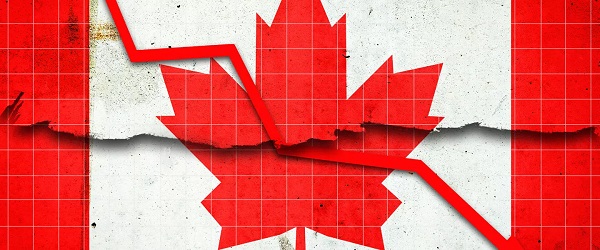
 Business2 days ago
Business2 days agoFiscal update reveals extent of federal government mismanagement
-

 Brownstone Institute1 day ago
Brownstone Institute1 day agoA Potpourri of the World’s Unexposed Scandals
-
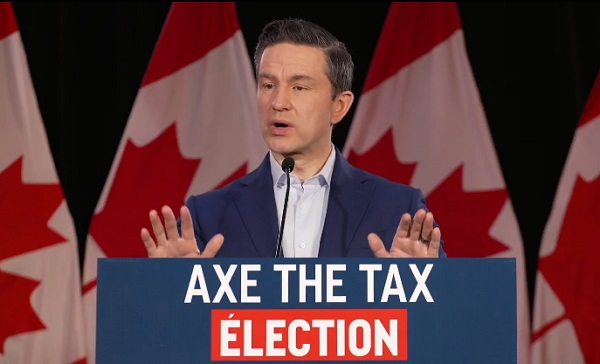
 National2 days ago
National2 days agoAs Trudeau’s government teeters, Pierre Poilievre pushes for immediate election call
-

 conflict2 days ago
conflict2 days agoTrump’s election victory shows the American people want peace in Ukraine
-

 Bruce Dowbiggin1 day ago
Bruce Dowbiggin1 day agoMLB’s Exploding Chequebook: Parity Is Now For Suckers





